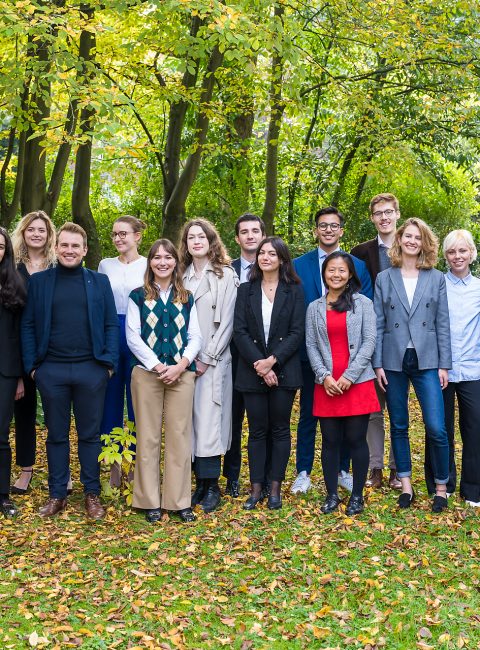IEE-ULB research projects
IEE-ULB research projects are carried out by research centres, units and by European and international research networks, in association with our ULB partner faculties.
IEE-ULB research is organised by projects. Some of them are organised and managed internally, within the institute. However, the IEE-ULB also takes part in other European and international projects.
Ongoing research projects
Jean Monnet Centre of Excellence EUqualis

The Institute for European Studies is pleased to announce that its project focused on inequality in the European Union has been selected as “Jean Monnet Centre of Excellence” for the 2021-2024 period.
The project EUqualis, directly involving a dozen academics and researchers affiliated with the Institute, aims to investigate how the EU deals with the problem of inequalities among individuals, territories and states. It has been conceived using a bottom-up, interdisciplinary approach. The focus on inequality follows the previous work on European Solidarity and EU Crises produced at the IEE-ULB.
GEM-DIAMOND
This project is the latest iteration of the GEM PhD School which has been delivering double doctoral degrees on Globalisation, Europe, and Multilateralism (GEM) since 2010.
This EU-funded project was launched in October 2022 and will assess the EU’s capacity to act given the challenges facing Democratic Institutions, the rise of Alternative MOdels and mounting Normative Dissensus (DIAMOND).
GEM-DIAMOND is a Marie Skłodowska Curie Action – Doctoral Network (MSCA-DN) involving 6 European – i.e. ULB, UvA, LUISS, UCPH, UBB, Paris1 – and 5 international – i.e. UoW, UNIGE, UL, WUT, FGV – degree-awarding Higher Education Institutes (HEIs) alongside 6 well-established non-academic institutions – i.e. CEPS, IAI, GMF, PATRIR, FIDH, EGMONT.
The project will hire and train 16 doctoral fellows to help address knowledge gaps associated with the growing dissensus undermining both multilateral and democratic practice.
RED-SPINEL
RED-SPINEL stands for ‘Respond to Emerging Dissensus: SuPranational Instruments and Norms of European Liberal democracy’. Launched in October 2022, it will seek, in the next years, to analyse the changing nature of dissensus surrounding liberal democracy and its implications for EU supranational policy instruments.
It is a 36-month long, 3.2 million euro, interdisciplinary, international and intersectoral Horizon Europe project involving seven higher education institutions: Université libre de Bruxelles, Libera Università Internazionale degli Studi Sociali Guido Carli, Universiteit van Amsterdam, Universitatea Babeș-Bolyai, HEC Paris, Uniwersytet Mikołaja Kopernika w Toruniu and the University of Warwick. They are joined in the consortium by four non-academic partners: Peace Action, Training and Research Institute in Romania, Milieu Consulting, Magyar Helsinki Bizottság / Hungarian Helsinki Committee and Stichting Nederlands Instituut voor Internationale Betrekkingen Clingendael across eight European countries.
Recent projects
GEM-STONES
A joint European Doctorate coordinated by the IEE-ULB. This research programme looks at the capacity of the EU to interact with the world. As an interdisciplinary project, it brings together lawyers, political scientists, economists and sociologists. The project if financed by the Marie Sklodowska-Curie programme.
Jean Monnet Centre of Excellence
IEE-ULB has been recognized as a Jean Monnet Centre of Excellence. This certification provides the Institute with resources to finance both research and teaching activities. The project awarded in 2016 is dedicated to European solidarity.
The study of the European Union is a core ambition of the transversal research agenda at the ULB, a university located at the heart of the EU. At the centre of this cross-departmental research on the EU lies the IEE-ULB.
In terms of research, the project integrated the various disciplinary researchers along a common research theme centred on European solidarity mechanisms.

Academic added value is to be created through synergies and clear research work programmes involving the lead EU studies experts from across the ULB. The integration and interdisciplinary dialogue needed for original research on the EU is built on the project’s core research puzzle, namely controversies facing European solidarity mechanisms.
ValEUR
This ARC (Action de Recherche Concertée) project is funded by the Wallonia-Brussels Federation. Its research theme raises the question of the emergence of European values in the EU agenda.
Contact the Research logistic coordinator for research at the IEE-ULB, to present your project!
